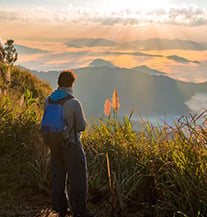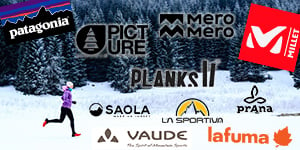Sign in
Contact
-
MenuBack
-
Our Sports
-
-
-
-
-
- Ski clothing
-
- Children's fleece
- Children's ski pants
- Men's fleeces
- Men's Softshell Jacket
- Women's fleeces
- Women's Softshell Jacket
-
-
-
-
-
-
-
- Cross-country ski clothing
-
- Men's fleeces
- Men's Softshell Jacket
- Ski touring gloves
- Ski touring socks
- Women's fleeces
- Women's Softshell Jacket
-
-
-
-
-
-
-
- Cross-country ski clothing
-
- Cross-country ski gloves
- Cross-country socks
- Men's lightweight down jacket
- Men's Softshell Jacket
- Women's lightweight down jacket
- Women's Softshell Jacket
-
-
-
-
-
-
-
- Snowboard clothing
-
- Men's Alpine ski jackets
- Men's alpine ski pants
- Men's fleeces
- Men's ski jacket
- Men's Softshell Jacket
- Women's Alpine ski jackets
- Women's alpine ski pants
- Women's fleeces
- Women's ski jacket
- Women's Softshell Jacket
-
-
-
-
-
-
-
-
- Mountaineering Clothing
-
- Climbing gloves
- Men's fleeces
- Men's Softshell Jacket
- Men's winter pants
- Women's fleeces
- Women's Softshell Jacket
- Women's winter pants
-
-
-
-
-
-
-
- Climbing clothes
-
- Climbing gloves
- Men's climbing pants
- Men's climbing T-shirts
- Men's Softshell Jacket
- Women's climbing pants
- Women's climbing T-shirts
- Women's Softshell Jacket
-
-
-
-
-
-
-
-
-
-
- Hiking clothes
-
- Hiking caps
- Hiking hats
- Hiking socks
- Men's hiking jackets
- Men's hiking pants
- Men's hiking T-shirts
- Men's Softshell Jacket
- Women's hiking jackets
- Women's hiking pants
- Women's hiking T-shirts
- Women's Softshell Jacket
-
-
-
-
-
-
- Trail shoe
-
-
-
- Trail clothing
-
- Men's tank tops
- Men's trail jackets
- Men's trail shorts
- Men's trail T-shirts
- Men's trail tights
- Men's windproof jackets
- Trail caps
- Trail socks
- Women's tank tops
- Women's trail jackets
- Women's trail shorts
- Women's trail T-shirts
- Women's trail tights
- Women's windproof jackets
-
-
-
-
-
-
-
- Running clothes
-
- Women's technical bra
- Running socks
- Trail caps
- Men's trail jackets
- Women's trail jackets
- Women's trail shorts
- Men's trail shorts
- Men's trail T-shirts
- Women's trail T-shirts
- Men's tank tops
- Men's windproof jackets
- Women's windproof jackets
-
-
-
-
-
-
-
- Bike clothing
-
- Bike cap
- Bike gloves
- Bike socks
-
-
-
-
-
-
-
- Mountain bike clothing
-
- Bike cap
- Bike gloves
- Bike socks
- Men's cycling jacket
- Men's cycling shorts
- Men's cycling shorts
- Women's cycling jacket
- Women's cycling shorts
- Women's cycling shorts
-
-
-
-
-
-
-
-
- Lifestyle clothing
-
- Lifestyle Caps
- Lifestyle Gloves
- Lifestyle socks
- Men's shirts
- Men's summer pants
- Women's summer pants
- Men's sweatshirts
- Women's sweatshirts
- Men's Lifestyle T-shirts
- Women's lifestyle T-shirts
- Men's winter jackets
- Women's winter jackets
-
-
-
-
Shoes
-
-
-
-
Snow shoes
- Après Ski
- Gaiters
- Shoe chains
- Winter boots
-
Snow shoes
-
- Ski boots
-
- Ski touring boots
-
-
Cross-country ski boots
- Classic
- Skating
-
Cross-country ski boots
-
- Snowboard Boots
-
- Canyoning shoes
-
-
-
-
Hiking shoes
- Flip-flops
- Hiking boots
- Hiking sandals
- Hiking shoe accessories
- Insoles for hiking boots
- Low hiking shoes
-
Hiking shoes
-
-
Mountaineering shoes
- Approach Shoes
- Mountain boots
- Mountaineering boots
-
Mountaineering shoes
-
- Trail shoe
-
-
Running shoe
- Running shoes
- Sandal recovery
- Shoe sole
-
Running shoe
-
-
-
-
Climbing shoes
- Lace-up climbing slipper
- Velcro climbing shoes
-
Climbing shoes
-
-
Bicycle shoes
- Boa cycling shoe
- Classic cycling shoe
- On shoes
-
Bicycle shoes
-
-
Mountain bike shoes
- Boa MTB shoe
- Classic MTB shoes
-
Mountain bike shoes
-
-
Lifestyle shoes
- Flip-flops
- Lifestyle shoes
- Sandals
- Slippers
- Sneakers
-
Lifestyle shoes
-
-
-
-
Clothing
-
-
-
Winter Clothing
-
Trail Clothing
-
-
-
Outdoor Clothing
-
-
-
Lifestyle Clothing
-
-
-
-
-
Winter Clothing
-
Trail Clothing
-
-
-
Outdoor Clothing
-
-
-
Lifestyle Clothing
-
-
-
-
-
Winter Clothing
-
-
-
Outdoor Clothing
-
-
-
Lifestyle Clothing
-
-
-
-
-
-
Brands
-
- Sale
- About us
- Blog
-
Eco-Friendly
-
1. Capacity and use
Your choice of backpack capacity depends mainly on the duration of your expeditions and the nature of your ascents. For day trips, a 20 to 30-liter rucksack may suffice, allowing you to carry the essentials: water, food, a change of clothes and small safety equipment. For multi-day expeditions, consider a bag between 40 and 70 liters. These larger bags should be able to store extra clothing, bivouac gear and food, as well as bulkier technical equipment such as ropes or ice axes.
It's also crucial to consider the type of mountaineering practiced. Ice-climbing packs, for example, are often equipped with special attachments for ice axes and crampons, while packs designed for fast, light ascents are often equipped with special attachments for ice axes and crampons, while packs designed for fast, light ascents are often equipped with special attachments for ice axes and crampons.s for speed climbing are generally more streamlined, with fewer compartments to reduce weight.
2. Comfort and fit
Comfort is paramount, especially in an alpine environment where every movement counts. A good mountaineering backpack should offer good back support, with balanced load distribution to avoid unnecessary strain on the back or shoulders. Look for models with a rigid but adjustable back panel, and ergonomic padded shoulder straps and hip belt. Adjustable back length and side compression straps allow further customization, adapting the bag to your body shape and the load carried.
Advanced suspension systems, such as those that allow the hip belt to move independently of the rest of the pack, can also significantly improve comfort, providing better balance and reducing fatigue on long approach walks or technical climbs.
3. Resistance and durability
In the extreme conditions of mountaineering, the durability of your backpack cannot be overlooked. Materials such as ripstop nylon and Dyneema are renowned for their abrasion resistance and light weight. Construction should also be taken into account: reinforced seams and industrial-grade zippers increase the bag's longevity.
It's also a good idea to check the bag's water resistance. Although most mountaineering bags are equipped with rain covers or are made from water-repellent materials, some models offer integrated waterproofing that makes them even more waterproof.models offer built-in waterproofing, which may prove indispensable in adverse weather conditions.
Other features to consider
- Access and compartmentalization: Multiple access points (top, bottom or side) facilitate organization and quick access to your equipment. Dedicated compartments can also help separate wet from dry gear, or technical equipment from the rest of your belongings.
- Hydration system compatibility: A dedicated hydration system compartment is essential for long climbs where every stop counts.
- External attachment points: Buckles and straps for attaching external equipment such as skis, ice axes or trekking poles are essential to free up space inside the bag and provide easy access to these tools.
In conclusion, choosing the right backpack for mountaineering means carefully evaluating every aspect of its design, capacity, comfort, durability and additional features. A well-chosen pack is an investment that will enrich your mountaineering experiences, allowing you to concentrate fully on the climb.





































